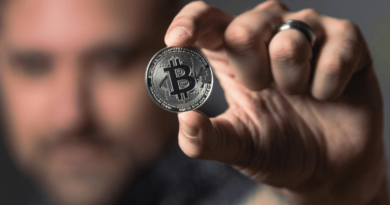The end of an era for Binance, troubles for Kraken: Law Decoded


Last week, the legal drama featuring the world’s largest crypto exchange and United States law enforcement ended with a plea deal. Binance and Changpeng “CZ” Zhao have admitted violating U.S. Anti-Money Laundering laws, agreeing to pay $4.3 billion in fines. CZ resigned as CEO of Binance as part of the deal. Binance’s former head of regional markets outside the U.S., Richard Teng, is the new CEO.
Cardano founder Charles Hoskinson reflected on the plea deal news, calling it “the end of an era.” In Hoskinson’s opinion, entrepreneurs must comply with regulations or develop permissionless protocols that can’t be regulated. Hoskinson warned that the world is changing and that entrepreneurs will no longer be able to get by using centralized systems while simultaneously not complying with regulations. This is because “the United States has a financial regime that basically has been weaponized,” and this regime will not allow entrepreneurs to open up markets that let “the enemies of America to basically trade and do things.”
Meanwhile, Kraken, another major crypto exchange, has been dragged into another legal fight with the U.S. Securities Exchange Commission (SEC). In a complaint filed in a San Francisco federal court, the SEC claimed that Kraken has been operating a platform that unlawfully facilitated the buying and selling of cryptocurrencies since 2018. Additionally, the SEC alleged Kraken’s business practices and “deficient” internal controls saw the exchange commingle up to $33 billion worth of customer assets with its own. The SEC said this resulted in a “significant risk of loss” for its clients. Kraken founder Jesse Powell called the action an “assault on America” and called the SEC the U.S.’s “top decel.” Powell even warned other companies to depart the country.
No bail for Sam Bankman-Fried
FTX founder and convicted fraudster Sam Bankman-Fried will remain behind bars after failing to convince a U.S. appellate court that he should be freed while his legal team appeals his conviction. The U.S. Court of Appeals for the Second Circuit said Bankman-Fried’s previous attempts to tamper with two witnesses while on pretrial release were a major reason behind rejecting his request. “We have reviewed the Defendant-Appellant’s additional arguments and find them unpersuasive,” the court said. Bankman-Fried’s legal team also argued that the district court failed to consider a less restrictive alternative to detention.
BlackRock discusses spot Bitcoin ETFs with the SEC
Representatives from BlackRock and the Nasdaq met with the SEC to discuss the proposed rule allowing the listing of a spot Bitcoin exchange-traded fund, or ETF. BlackRock presented how the firm could use an in-kind or in-cash redemption model for its iShares Bitcoin Trust. It’s unclear how SEC officials responded to the two proposed models or if they intend to approve a spot BTC ETF after numerous delays and rejections. Many reports have suggested the SEC could be nearing a decision on a spot BTC ETF for listing on U.S. markets. If approved, it would be a significant move toward mainstream crypto adoption. SEC officials also met with Grayscale representatives on Nov. 20 in the firm’s bid to list a Bitcoin ETF.
Tether and Bitfinex won’t resist a Freedom of Information Law request from U.S. media
Tether and Bitfinex have jointly agreed to drop initial opposition to a Freedom of Information Law (FOIL) request lodged in New York by some high-profile news publications. A statement from the Tether (USDT) stablecoin issuer and cryptocurrency exchange shared with Cointelegraph notes that it is committed to transparently sharing information following a FOIL request from CoinDesk earlier in 2023. Tether and Bitfinex will not appeal against the FOIL request put forward by journalists, including Zeke Faux, Shane Shifflett and Ada Hui, whom they accuse of exhibiting “certain behaviors.”
The ongoing FOIL request relates to Tether and Bitfinex reaching an agreement with the New York Attorney General in February 2021. As initially reported by CNBC, the agreement involved paying an $18.5 million fine to settle a two-year-long legal dispute regarding the alleged commingling of $850 million of client and corporate funds.




